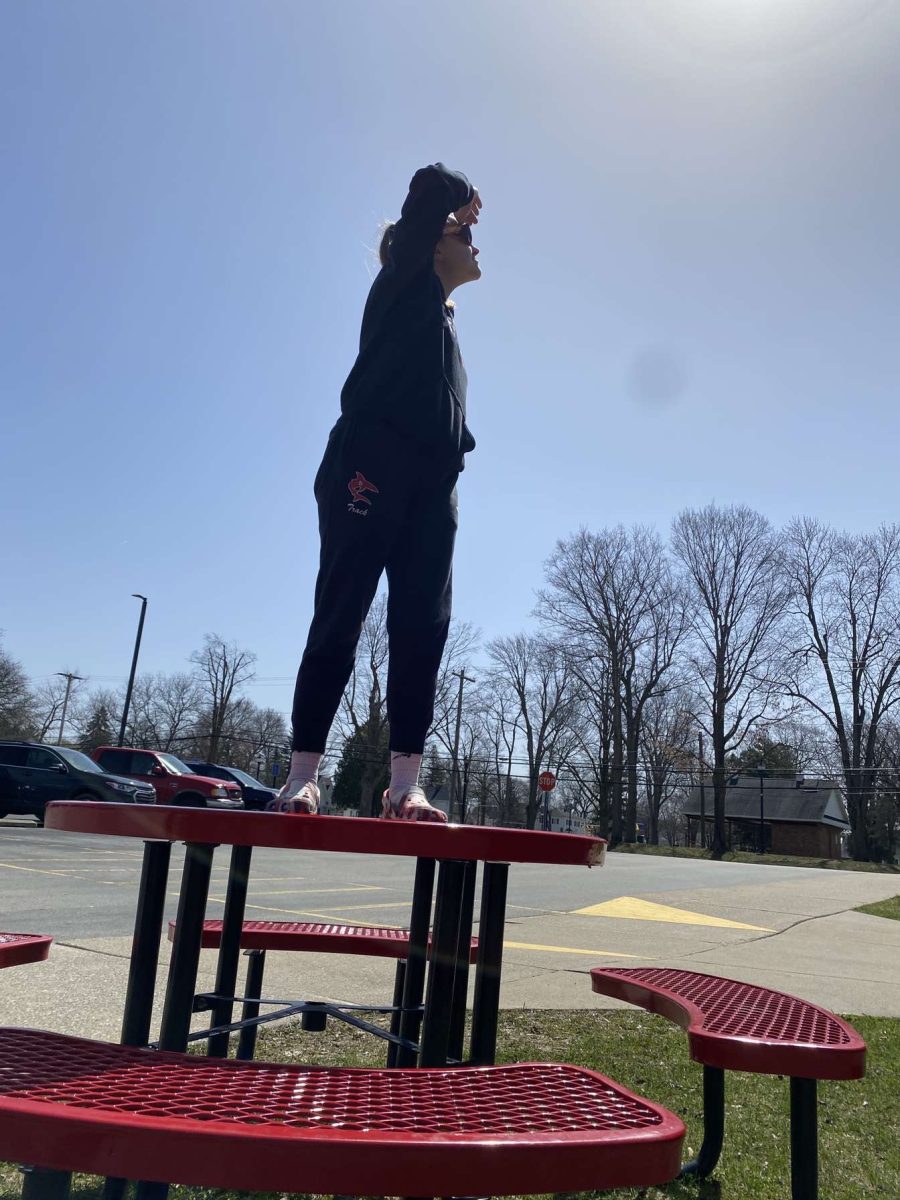The staff and students of St. Louis, as well as the citizens of most of the United States, were able to bear witness to a total solar eclipse in certain parts of the country shortly after three p.m. Monday, April 8, 2024.
Solar eclipses occur every one to three years around the world, but they are mostly only visible from the poles or from random spots in the ocean. Total solar eclipses are special, however, and they aren’t as common – the most recent eclipse in the United States was in 2017, and the next one won’t be until 2044.
While St. Louis isn’t in the path of totality for this solar eclipse, residents were still able to see parts of it. History teacher Kevin Kuhn shared, “If I could, I would have left school a little early and driven out somewhere into the path of the total eclipse.” Kuhn continued, saying, “To be fair, we’ll be able to see about 97 percent of the eclipse, but it’s not total if it’s not 100 percent.”
While a lot of teachers and students may not have been able to see the full eclipse from Gratiot County, some people drove all the way into the path of totality just to see it! One of these students was senior Hannah Bobzien.
“It was a surreal experience,” stated Bobzein. “The sky darkened so quickly and it looked as if we were in the middle of a really bad storm cloud, but it was silent. It was incredible.”
While St. Louis may not have been in the path of totality for this year’s solar eclipse, the effects of it were still visible around town for many students. Sophomore Hayden Mader, who viewed the eclipse during its peak, shared, “It was interesting to watch the sky get darker. The shadows were definitely really interesting looking.”
“This was definitely a once-in-a-lifetime experience,” shared Bobzien. “The movies do not exaggerate just how astonishing the experience is.”
In 20 years the next solar eclipse will roll around, and many things will change. Some of the students who currently attend the school might have kids of their own attending the school! The memories made by the students at SLHS regarding the 2024 solar eclipse will stay with them until the next solar eclipse.








